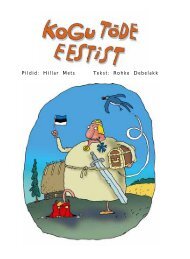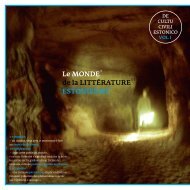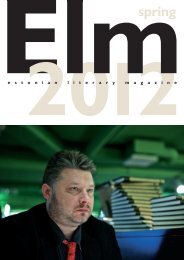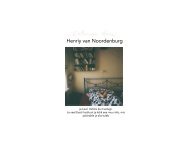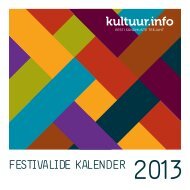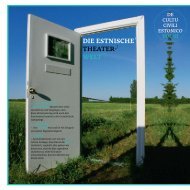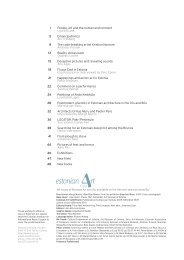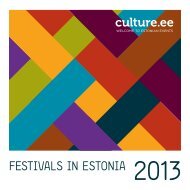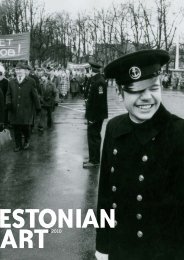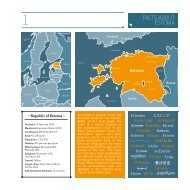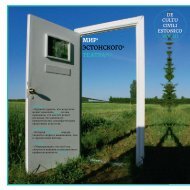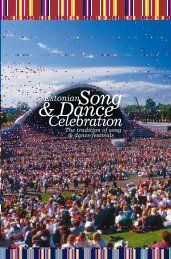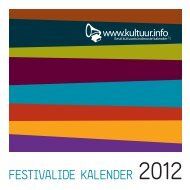Autumn 2013
Autumn 2013
Autumn 2013
You also want an ePaper? Increase the reach of your titles
YUMPU automatically turns print PDFs into web optimized ePapers that Google loves.
Members of the Estonian Writers' Union in Sweden and Finland in 1970<br />
Perhaps something personal about him as<br />
well. Thanks to a grant from Lund University, I<br />
had an opportunity in 1994 to study Estonian<br />
exile literature for four months at the very same<br />
Finno-Ugrian Institute previously headed by<br />
Valev Uibopuu. On several occasions I visited<br />
the writer’s home at Tunnbindaregatan, where<br />
Valev, his wife Malle and I had long chats about<br />
literature, life in exile and life in general. In<br />
warm weather we sometimes sat on the veranda<br />
facing the garden and admired the blooming<br />
apple trees grafted by Valev Uibopuu himself.<br />
In the southern Estonian dialect area where<br />
he grew up, his name means apple tree. Uibopuu’s<br />
same trees are still going strong today.<br />
These chats confirmed Valev’s deep<br />
humanity, and a keen interest in the world<br />
and everything going on at home. Political<br />
refugees often live a very introverted life,<br />
with their eyes always turned to the past.<br />
Uibopuu tried to understand the motives<br />
behind human action, but never hastened to<br />
condemn anyone. This perfectly harmonised<br />
with his whole work. He warned against too<br />
much ideology in literature, of which there<br />
were examples in works published both at<br />
home and abroad. He kept to his principles<br />
and never once visited his homeland before<br />
the independent Republic of Estonia had<br />
been re-established and the Soviet army had<br />
left. As a linguist, Valev Uibopuu considered<br />
the Estonian language to be the foundation<br />
of Estonian independence and this conviction<br />
unites his entire legacy. During one of<br />
my later visits to Lund, we managed a longer<br />
interview, published in the literary journal<br />
Looming (1997, nr 1). This was not an easy<br />
task, because for Uibopuu what mattered in<br />
creative work was mankind, and not the<br />
writer, who was supposed to stay in the<br />
background.<br />
“The Creator has given him his living<br />
breath”, wrote Uibopuu’s friend and colleague<br />
in Sweden, the writer Karl Ristikivi, about<br />
Uibopuu’s books. It is a worthy acknowledgement,<br />
the more significant as it was written<br />
when Uibopuu was still alive. We can safely<br />
repeat the sentence now that we are celebrating<br />
the one hundredth anniversary of the<br />
writer’s birth.



